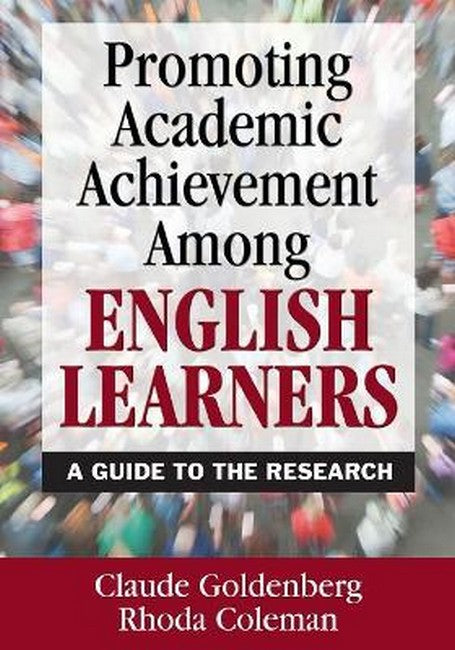Claude Goldenberg, a native of Argentina, is Professor of Education at Stanford University. He received his AB from Princeton University and PhD from UCLA's Graduate School of Education. Goldenberg has taught junior high school in San Antonio, TX, and first grade in a bilingual elementary school in the Lennox School District near Los Angeles. Goldenberg was a National Academy of Education Spencer Fellow and a recipient (with Ronald Gallimore) of the Albert J. Harris Award from the International Reading Association. He was on the Committee for the Prevention of Early Reading Difficulties in Young Children (National Research Council) and the National Literacy Panel (NIH and U.S. Department of Education), which synthesized research on literacy development among language-minority children and youth. He is author of Successful School Change: Creating Settings to Improve Teaching and Learning (Teachers College, 2004). His research focuses on improving achievement for language minority students, particularly those from Latino backgrounds. Rhoda Coleman is Senior Research Fellow and Professional Development Specialist at the Center for Language Minority Education and Research at California State University, Long Beach (CSULB). She received her BA and EdD from University of Southern California, has a master's in Reading and Reading Specialist Credential from Loyola Marymount University, and a master's in Administration from California State University, Los Angeles. Coleman taught elementary school in grades 1 through 6 for 29 years in the Lennox School District near Los Angeles where she taught EL students transitioning into English. She was then a Language Arts consultant for Los Angeles County Office of Education providing K-12 professional development to school districts throughout California and writing and producing over 25 teacher-training videos. She currently teaches in the teacher credential program at CSULB. Coleman was a California Teacher of the Year, recipient of the Milken National Educator Award, and California Social Studies Teacher of the Year.
Request Academic Copy
Please copy the ISBN for submitting review copy form
Description
List of Tables and Figures Acknowledgments About the Authors 1. Why This Book? 2. The Role of the Home Language 3. Literacy Instruction in a Second Language 4. Promoting English Oral Language Development 5. Academic Instruction in a Second Language 6. School and District Role: Focus and Coherence 7. Social, Cultural, and Family Influences 8. The Research Goes to School 9. Conclusion: What's Next? Glossary Index
"Given the number of English learners already in our schools and the rate at which this population is growing, effectively educating language-minority students is one of the greatest challenges schools face. To meet this challenge, as Goldenberg and Coleman forcefully argue, we need to be guided by the best research available. In this lucid, concise, and reader-friendly review of the research on teaching English learners, the authors present the information that teachers, curriculum specialists, and policy makers need to create the strongest possible instructional programs. But this book is more than a review of research-it also includes specific recommendations that follow from the research. I highly recommend this excellent book to everyone concerned with the education of language-minority children." -- Michael F. Graves, Professor of Literacy Education, Emeritus "The authors have done an exceptionally good job of capturing the major trends, differing perspectives, and many challenges in schooling of English language learners, while putting forth a vision for the immediate future that is solidly grounded in research and in current and evolving knowledge. This book is essential reading for all teachers, teacher educators, and policy makers." -- Liliana Minaya-Rowe, Associate Researcher, Center for Data-Driven Reform "A must-read for administrators, program developers, policy makers, and educators who make decisions about English language learners (ELLs) in our schools. Goldenberg and Coleman synthesize a complex body of research into a work that is objective, comprehensive, and understandable. While they address the theories and common beliefs that often drive practice with ELLs, they focus on what is known to be effective for ELLs based on child outcome data. They are also honest and transparent about their own opinions and clear when they are discussing known facts. In sum, this book represents a trustworthy source for determining what is known about providing the highest quality educational services for students who are ELLs." -- Patricia G. Mathes, Texas Instruments Chair of Reading & Professor of Teaching and Learning

